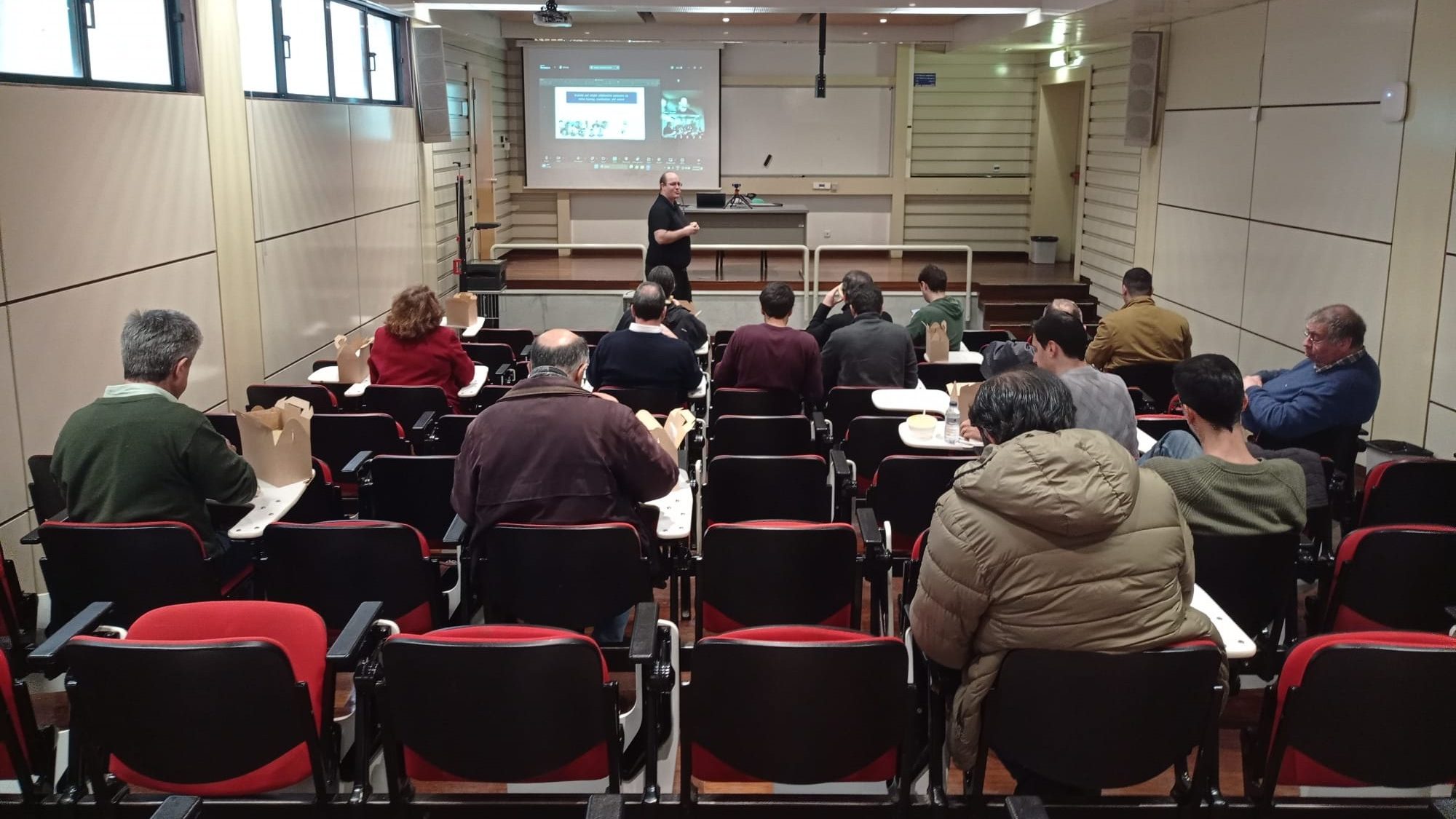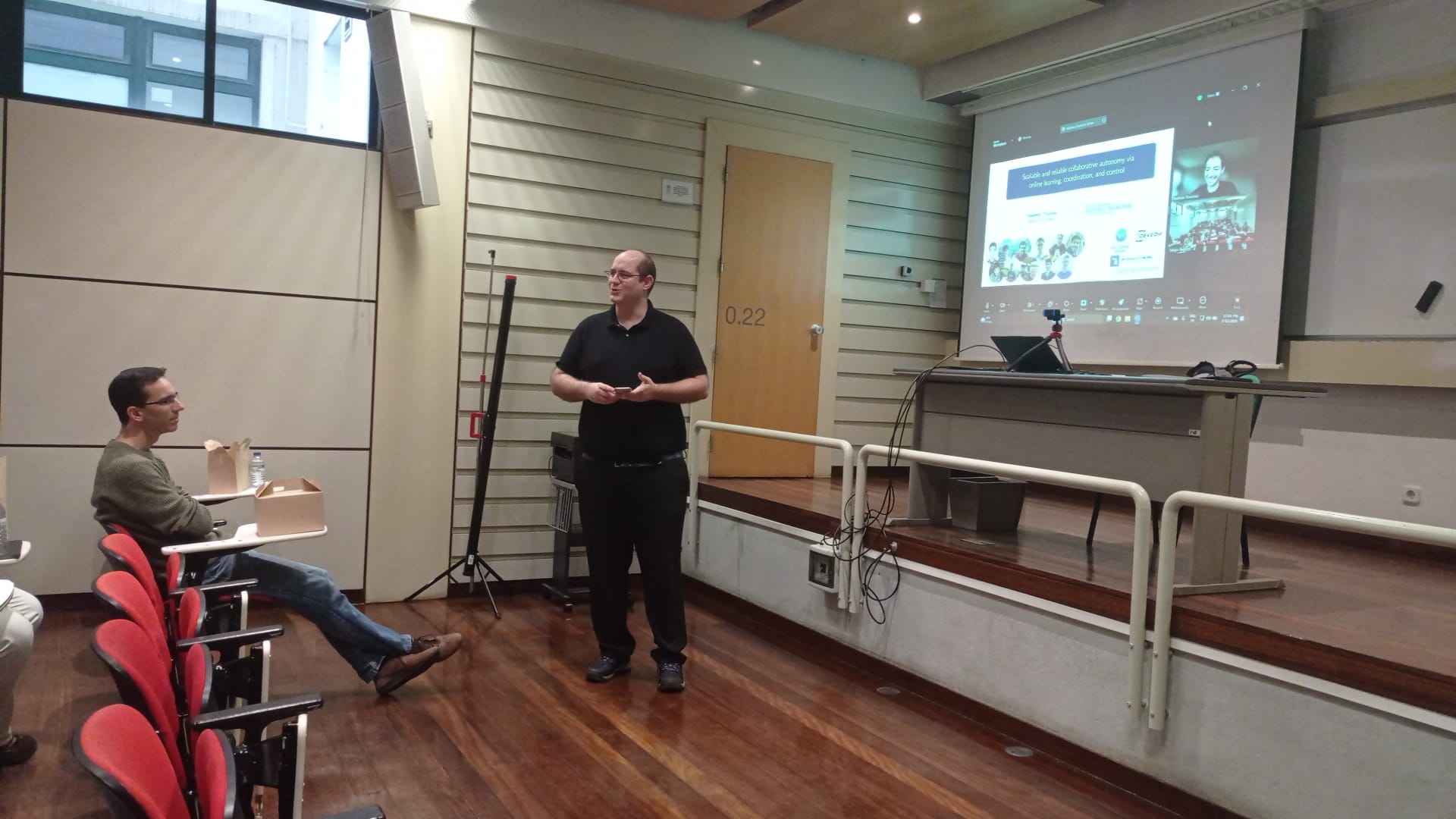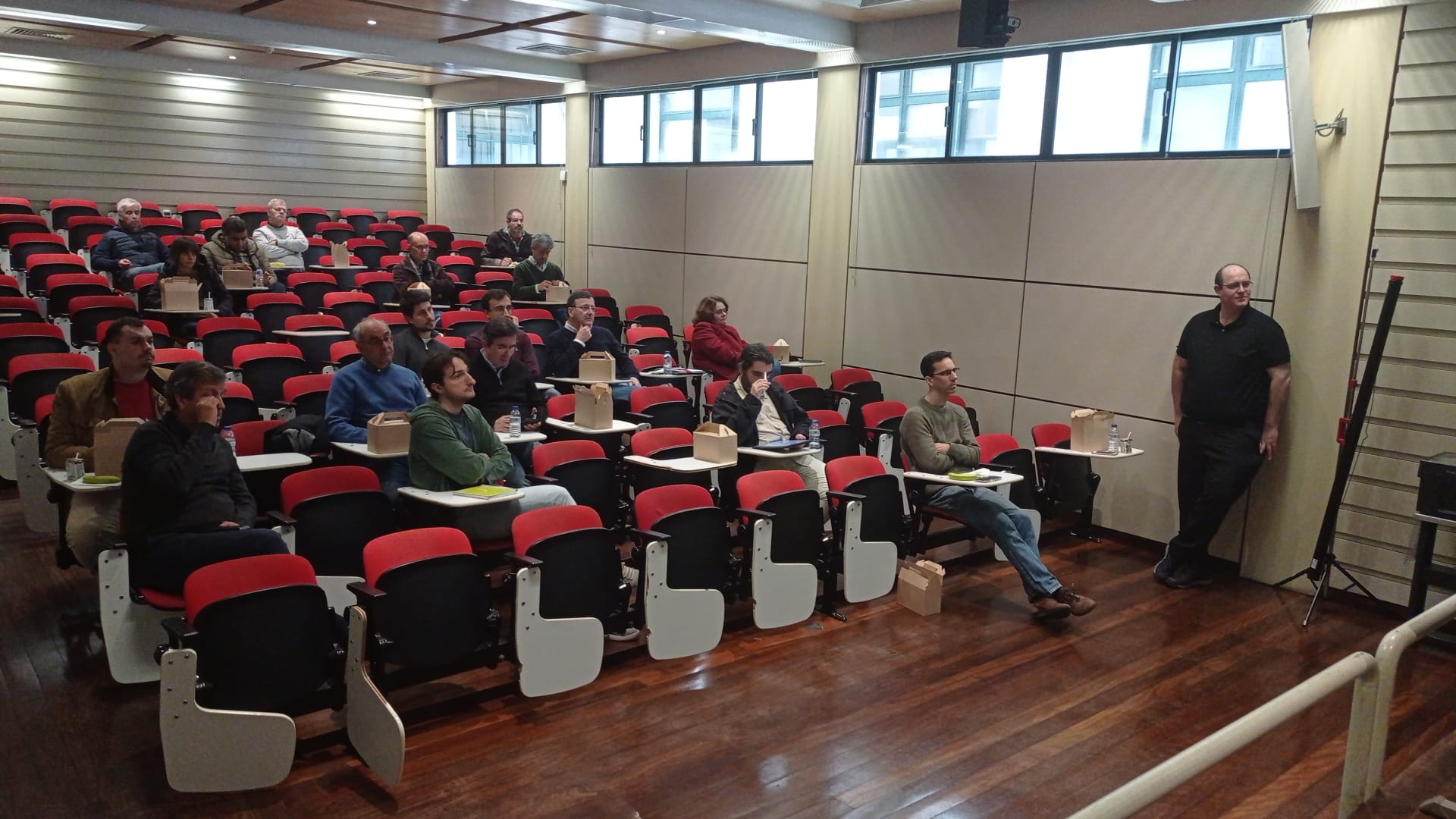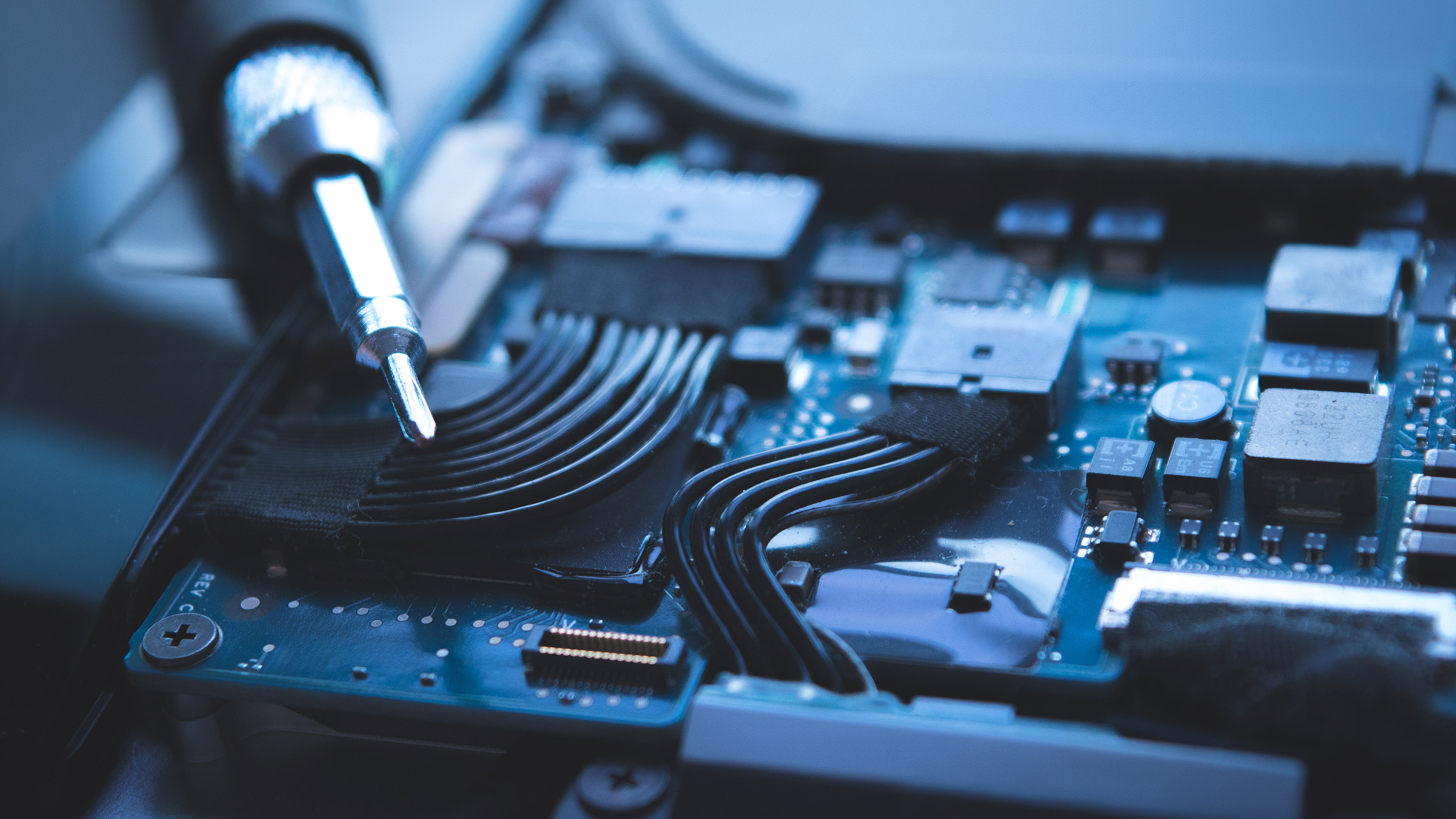DEEC TALK: Scalable and reliable collaborative autonomy via online learning, coordination, and control

On March 12th, the 1st DEEC TALK took place, where Professor Vasileios Tzoumas presented the session Scalable and reliable collaborative autonomy via online learning, coordination, and control.
Vasileios Tzoumas is currently an assistant professor at the University of Michigan, where he leads the Intelligent Robotics and Autonomy Lab (iRaL) and chairs the Academic Success, Community, and Outreach Committee. He presented the latest advances in his research on scalable and reliable cyber-physical systems in environments with limited, unstructured, and contested resources, such as systems found in defense, disaster response, and smart cities. His research aims to provide solutions for the development of software and hardware systems, utilizing data collection, mathematical equations, and artificial intelligence, enabling the construction of robots for road or terrain surveillance, tracking, or other security-related tasks, including data collection with networked drones capable of autonomous navigation.
The lecture began with a brief introduction of the speaker by Professor Sérgio Pequito, Vice President for Research, Development, and External Relations.

Throughout the session, the professor emphasized the need for a rapid and reliable response from the system in environments with constraints, such as communication speed and the impossibility of having a centralized communication system, also due to the large volume of data collected by the different robots in the network. For this reason, he highlighted the importance of developing networks that optimize the robots' performance and provide the best possible pre-assessment of the actions taken. This system is currently being studied through communication between neighboring robots: imagining a situation where two drones are positioned beforehand, and a third drone needs to be positioned, the new drone receives shared information from the first two and positions itself in a way that covers the maximum area, in case terrain surveillance is required.

However, some of the challenges that researchers face also include preparing systems for unexpected attacks or adverse environmental conditions (including wind, rain, and uneven terrain) and the adaptability of the algorithm, as the system is only updated after actions are taken. For this reason, one of the research objectives is for the system to learn quickly on its own.
During the lecture, Vasileios Tzoumas also discussed the mathematical models and mechanisms used by researchers, such as neural networks, which function similarly to the human brain, the use of nonlinear control tools, submodular optimization, and the Gauss system, which is a mathematical model that eliminates elements from a set to obtain an equivalent system with an upper triangular matrix. For example, this allows for the surveillance of the maximum area of terrain, where data is collected by three drones, without repeating data collected by different robots.
The session was open to questions from participants, ending with a Q&A session.
The next DEEC TALK will be on April 9th and will feature Dr. Tarlochan Sidhu, who will discuss how artificial intelligence can contribute to the optimization of smart grids.
